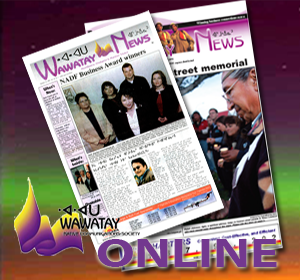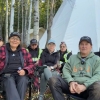An epidemic of addictions has led Mushkegowuk Council in north eastern Ontario to declare a state of emergency. A crisis has occurred including issues of homelessness, limited access to shelters, the lack of mental wellness and too few addictions supports in the council’s territory.
Myself and our First Nations leaders have been watching as this crisis has been developing over the years to the point where it is killing and severely impacting people in our communities as well as our members living off reserve. Things have gotten to the point where it is making our communities unsafe and resulting in so many tragic endings for my people. I am hopeful these days as I see more of our people with addictions education and experience being involved in using their real life experience in recovery to help those with addictions. It is great to have the support and assistance of many types of health care workers but it is essential to have our people in place, who know the culture and traditions, speak the language and have the experience of being an alcoholic or drug addict now in recovery. I see more of this happening and that is a healthy trend.
Mushkegowuk Council Grand Chief Leo Friday and his council recently issued a letter declaring the state of emergency and asking for support to Prime Minister Mark Carney and Premier of Ontario Doug Ford. The council is asking for the establishment of a task force to deal with this crisis. The council has also requested in a resolution for immediate funding for expansion of the emergency shelter (Living Space) and overflow capacity to ensure the safety and dignity of all community members during the winter months and beyond; support for new and existing land-based healing and treatment centres grounded in Mushkegowuk culture, language, and traditions; immediate funding for the establishment and operation of local First Nation community shelters, men’s shelters, safe beds, and transitional homes to meet urgent needs in each community; sustainable funding for the Mushkegowuk Firekeeper program, ensuring the continuation of outreach, prevention, and harm-reduction supports that meet members where they are and help bridge them to safety and care; establishment of 24/7 crisis response services ensuring coordinated, culturally grounded, and trauma-informed care for Mushkegowuk members in urban areas within the territory; investment in long-term housing infrastructure and community-led solutions that address the needs of Mushkegowuk members both on- and off-reserve, creating safe and stable environments that promote healing, belonging, and family re-connection; hosting of a regional conference to hear directly from community members experiencing housing shortages, addictions, and mental health inequities, ensuring their lived experiences guide the direction of programming, policy, and healing pathways; development of a comprehensive regional strategy to address the interconnected housing, mental health, and opioid crisis through a land-based and culturally grounded approach guided by the teachings of the Mushkegowuk people.
At a time when the federal and provincial governments are pushing ahead with all kinds of emergency bills dedicated to developing and funding billions in projects it is imperative they deal with this epidemic emergency and crisis involving addictions and health issues in our First Nations. I have lost family and friends to drugs and alcohol over the years and things are getting worse with new drugs like fentanyl, opioids and the easy access to these substances. It should be noted that part of the blame for this epidemic is with the huge pharmaceutical companies involved in producing and promoting opioids which resulted in the death of many thousands of people over the years. There have been successful law suits that resulted in billions of dollars in payouts from these companies but in fact nobody has ever gone to jail. However our prison system is bulging with First Nation and other minorities many who ended up incarcerated due to their use of drugs. First Nations people have been affected by the historical abuses of colonization, residential schools system and systemic racism. It is time to make things right.













An epidemic of addictions has led Mushkegowuk Council in north eastern Ontario to declare a state of emergency. A crisis has occurred including issues of...
As we are ready to honour November 11, Remembrance Day I think about the destruction war has done to my James Bay Cree family and my partner Mike’s Irish...